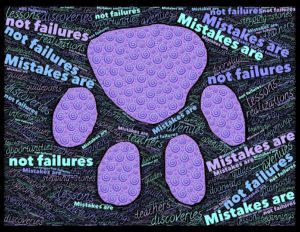Motivation makes things happen!
Let me guess! You want to learn Turkish but you still hesitate to take a step, right? Or you have just begun to learn Turkish but you cannot feel into it. Then, it seems like you haven’t find the right motivation yet. Motivation has a significant role in language learning. Dörnyei(2005) claims that motivation is the most powerful instinct that starts language learning and helps us to stay persistent. We act more energetically when we feel motivated and we endure longer when we face problems on our way. Also, those who are highly motivated are open to learning. They don’t give up easily and they progress faster. That is why finding the right motivation before starting an action is important as it will affect your success in it. Likewise, it is crucial to be motivated and persistent and not to give up while learning Turkish. Because learning Turkish is a process and this process will be easier if you find the right motivation accompanying you. So, what is your motivation for learning Turkish?
Love your mistakes!
“A person who never made a mistake never tried anything new.” So said Albert Einstein.

Mistakes are a part of our lives. We learn from our mistakes. If you make mistakes, it means you are learning. As in everything, you might make mistakes while learning Turkish. Moreover, you may fail. At this point, you have two choices: Either you will let your mistakes to conquer you and you will give up or you will face with your mistakes, embrace them and learn from them. The former will take you back, the latter will take you further. Languages are learned by making mistakes. Think of a baby, how they speak at first, how proud they are with their mistakes. The most important thing is to express yourself and to be able to communicate even though you use wrong grammar, wrong pronunciation. The time and consistent practice will fix everything. Make fun of your mistakes, laugh at them. Don’t give up, only move forward.
Know yourself!
Knowing yourself is another important issue in learning Turkish.
You should know how you learn, which activities are best for you, how you study best. Don’t forget, there is no perfect method and every learner is unique. You should find the one best fits you. You should know yourself well and find which learning styles work for you. There are 8 learning styles: The Linguistic, The Naturalist, The Aural, The Visual, The Logical, The Interpersonal, The Intrapersonal. Moreover, you should know what type of learner you are. So, what does it mean? For example, you may be a risk-taker learner who works independently and brave or a more controlled one who prefers thinking in detail. Maybe, you prefer discovery learning or taking the ready information from an instructor. Maybe, your best work alone and teamwork is not for you or vice versa. Think about it. What type of learner are you? What is your best way to learn? How do you work most effectively?
Find your own pace!
No need for a rush! Keep calm and let it go.
You can’t learn everything at once. Your brain needs time to process the information. It requires more practice to store the information in long term memory. How well would you remember a person you only see once in your lifetime? Not quite well, right? So, you shouldn’t expect to learn Turkish with less effort and time. You should practice a lot. Learning Turkish requires time and effort. It is normal to learn some units easily and some other units slowly. Don’t be hard on yourself. Give yourself some time to learn. Take a break, turn back or move forward. Have your time and try again. Combine your previous knowledge with the newest. Don’t ignore the things you have difficulty in. Practice more. Consult us. We are pleased to help you.
Here some advice for you to develop your Turkish:
• Make a Turkish friend.

The more you produce Turkish, the more it develops. A Turkish friend you talk even sometimes will be very helpful to you in experiencing Turkish culture and practicing the language.
• Read literary works like poems, stories, and novels, etc.
Reading will improve both your grammar and vocabulary knowledge.
•Watch Turkish movies and TV-series. Listen to Turkish songs and follow Turkish blogs and vlogs.
By doing so, you can develop your listening and reading skills as well as your comprehension skills while having information about daily issues or your interests. You can improve your language sensitivity. Feel the speaker’s voice, stresses, and words.
• Keep a journal.
You can share your experiences while learning Turkish or what happens in your daily life. So, you can keep tracks of your own Turkish learning process and your Turkish knowledge will remain fresh.
• Follow our Turkish4 blog site.
You will have information about learning Turkish and at the same time, you will improve your reading comprehension skills. If you need any question or help, don’t hesitate to ask us. We are pleased to help you.
REFERENCES
- Dörnyei, Z. (2005). The Psychology of the Language Learner: Individual Differences in Second Language Acquisition. Mahwah, NJ, US: Lawrence Erlbaum Associates Publishers.
Link: https://psycnet.apa.org/record/2005-08715-000 - Learning styles: https://www.skillsyouneed.com/rhubarb/fingerprints-learning-styles.html
- https://visme.co/blog/8-learning-styles/
- Learner types: https://www.ibo.org/contentassets/fd82f70643ef4086b7d3f292cc214962/learner-profile-en.pdf
Sinem Bilben
Turkish4 Trainer

